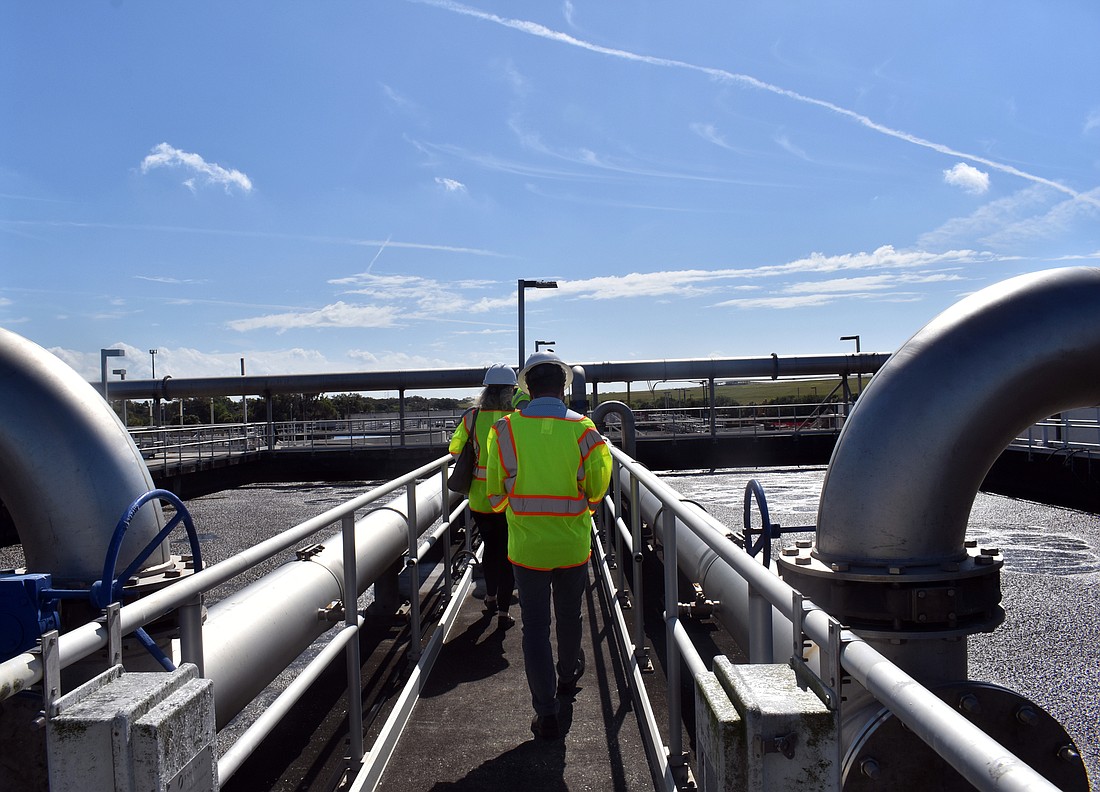- July 26, 2024
-
-
Loading

Loading

As county leaders work to finalize a proposed budget of nearly $323 million, they are examining which departments will see budget cuts as a result of COVID-19 and which need more money.
County leaders are anticipating losses of $16.7 million to the $323 million general fund budget, or $45 million overall losses to the $1.3 billion total budget, in the remaining year and fiscal year 2021 because of COVID-19 income shortfalls. To help offset this, the proposed 2021 budget includes $5 million in paused general fund spending on promotional activities, travel and training, and vacancies.
Although the county is expecting a decrease in revenue over the next two years, there are some departments that have proposed an increase in budget for the next fiscal year.
The Sarasota County Sheriff’s Office budget could see a $3.2 million increase, or 2.6% over fiscal year 2020, to $123.4 million.
Although Sheriff Tom Knight said the most serious types of criminal offenses are down 51% over the past decade, the department has an increasing need for deputies to assist with traffic crashes, particularly on Interstate 75.
Chief Deputy Col. Kurt Hoffman, who is running for sheriff this election cycle, said the department also took into consideration results from the 2019 county Citizen Opinion Survey, which ranked traffic and transportation concerns as the No. 3 “most important issue facing Sarasota County today.”
Over the past seven years, Hoffman said Florida Highway Patrol’s involvement in traffic crash response has decreased, which has made it necessary for the Sheriff’s Office to play a more active role.
Sheriff’s Office documents show that in 2012, FHP handled 2,389 (69%) of 3,453 reported crashes in the county. In 2019, the Sheriff’s Office responded to 5,644 (72%) of 7,752 crashes.
“We do not want our constituents waiting alongside the road for an hour or two hours for [FHP] to show up,” Hoffman said.
Of the proposed budget, Knight said about 57% would be allocated to the Law Enforcement Division, and 25% would go to the Corrections Division.
Knight said the department also would use the funds to help maintain a low turnover rate of officers. The department’s rate is 7.1% compared to 9.4% for law enforcement countywide and about 20% nationally.
Knight said the salary level the commission has been willing to fund has helped maintain deputies and recruit new ones successfully.
Funding also will continue to support jail programs that allow inmates to overcome substance abuse, work on resumes, get a driver’s license and prepare for life upon release. Earlier this year, the commission funded a 40-bed pilot program as a diversion for those with health problems.
Another project that continues to weigh on county spending is the renovation of the Bee Ridge Water Reclamation Facility into an advanced wastewater treatment facility.
A $157 million upgrade is in progress at the facility, which has long been blamed for major contributions to the county’s poor water quality.
The county has a 30-year $170 million bond on the facility, and Public Utilities Director Mike Mylett proposed an increase in public utilities budget of 7.6%, up to about $200.2 million. However, he said the budget is funded 100% by enterprise funds, and no general fund revenue would be used.
The transformation already has increased residents’ utilities fees. A 5% increase in wastewater fees is planned annually for five years, plus a water quality fee of $1 per dwelling unit.
Money from the fee, which would bring a typical water bill from $45 to just under $58 in five years, will help pay off the bond.
Although commissioners said they know how important the project is, they are struggling to authorize the longevity of the construction, which Mylett said could take up to six years.
“I’m struggling with six years to take an existing plant, expand it and convert it, versus just taking a blank piece of land and building an entire plant,” Hines said. “I know it’s not apples to apples, but they built an entire baseball stadium that never existed in less than two years in our county.”
Mylett said the project would take years because they have to keep the existing facility in operation while expanding.
He also said he hopes to receive projections on converting the county’s remaining facilities to advanced wastewater treatment. Commissioner Alan Maio said he would like to see those numbers soon to begin planning.
“We are the gatekeepers,” Maio said. “We need an unvarnished, unblemished look that says, ‘Here’s how much this is going to cost.’ Nobody up here is going to run screaming into the night. We know it will be a lot.”